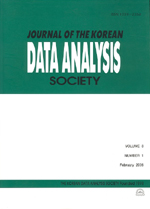ESL Learners’ Skill-related Vocabulary Learning Strategies and Their Relationships with Learner Factors
- 한국자료분석학회
- Journal of The Korean Data Analysis Society (JKDAS)
- Vol.16 No.5
-
2014.102379 - 2392 (14 pages)
- 13

This study investigated skill-related vocabulary learning strategy (VLS) used in reading, writing, listening, speaking, and memorization areas by 462 tertiary level ESL (English as a second language) international students. We also attempted to uncover what learner variables affect the use of VLS. Based on the data collected from the skill-related vocabulary learning strategy instrument the findings regarding the frequency of VLS use showed that ‘look-up’ and ‘contextual guessing’ strategies were the most frequently used ones among the ESL participants in reading and writing, respectively. As to the two productive skills including writing and speaking, the participants frequently used compensation strategies to cope with their limited vocabulary knowledge. Moreover, the result of correlation analysis showed that three variables including hours for learning vocabulary, vocabulary knowledge, and years of studying English are significantly correlated with VLS use. Finally, the analysis of t-test indicated that gender was not a statistically significant factor in VLS use. Academic level and major, on the other hand, were found to be potent factor affecting the VLS use.
1. Introduction
2. Literature Review
3. Method
4. Discussion of the Findings
5. Implications and Conclusion
References
(0)
(0)